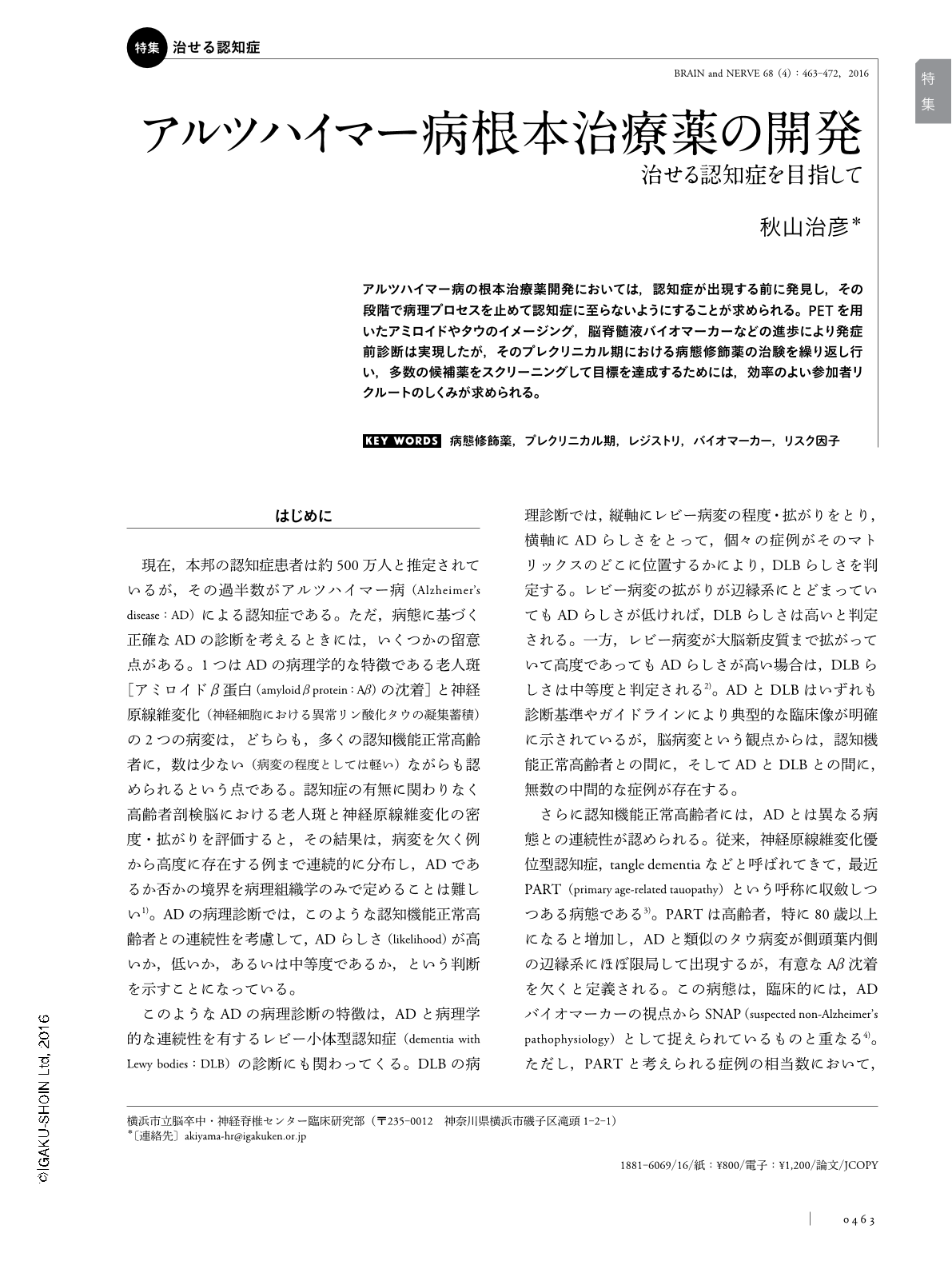Japanese
English
- 有料閲覧
- Abstract 文献概要
- 1ページ目 Look Inside
- 参考文献 Reference
アルツハイマー病の根本治療薬開発においては,認知症が出現する前に発見し,その段階で病理プロセスを止めて認知症に至らないようにすることが求められる。PETを用いたアミロイドやタウのイメージング,脳脊髄液バイオマーカーなどの進歩により発症前診断は実現したが,そのプレクリニカル期における病態修飾薬の治験を繰り返し行い,多数の候補薬をスクリーニングして目標を達成するためには,効率のよい参加者リクルートのしくみが求められる。
Abstract
The development of disease-modifying therapy (DMT) that can arrest the pathological processes of Alzheimer's disease (AD) has emerged as one of the highest priorities of medical research. Two pathological hallmarks, amyloid-beta (Abeta) protein deposition and tau accumulation, are the major targets of DMT. Immunotherapy for Abeta removal and secretase inhibitors/modulators that reduce total or accumulation-prone Abeta are candidate DMTs against Abeta. Compounds that prevent tau aggregation are also under development. Clinical trials that test the efficacy of these DMT candidates are in preparation or ongoing. Recent studies of biomarkers of AD brain lesions have indicated that Abeta and tau accumulation appears 10 to 30 years before the occurrence of dementia and gradually propagate to reach the level that causes symptoms. Therefore, efficacy of DMT has to be evaluated in the preclinical stage of AD. The incidence of preclinical AD in the cognitively normal, aged population are estimated to be around 19%. Thus, currently available biomarkers, amyloid/tau PET imaging and cerebrospinal fluid measurements of Abeta and tau, are, perhaps, too invasive and costly. An international collaborative effort is needed to overcome this issue.

Copyright © 2016, Igaku-Shoin Ltd. All rights reserved.


